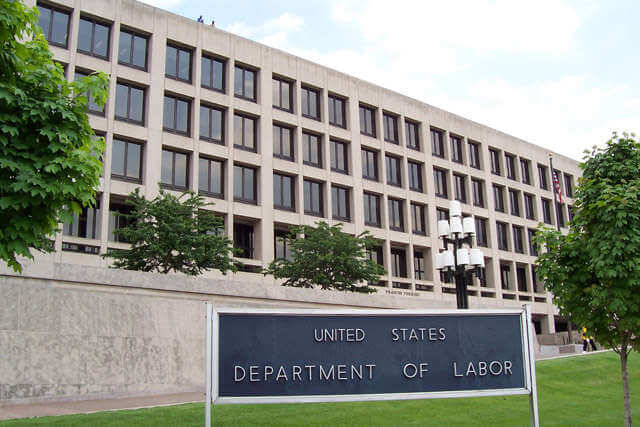Franchising Created over 30,000 Private Sector Jobs in October 2017
By Michael Seid, Managing Director, MSA Worldwide
The U.S. economy added 2.06 million jobs in 2017, somewhat short of the 2.24 million jobs added in 2016 but representing another solid year of gains.
The Labor Department’s jobs report for October 2017 showed the economy adding 261,000 jobs in that month, below Wall Street expectations of 310,000, but still the 85th straight month of gains – the longest streak on record.
While a bright spot in the report was that the unemployment rate remaining at 4.1%, a 17-year low, most observers recognize that the unemployment rate is artificially crafted and thus an inaccurate indicator of the health of our economy. Wage growth remains anemic at 2.5%. The labor participation rate remains stagnant at 62.7%; it has averaged 63% from 1950 to 2018, with an all-time high of 67.3% in January 2000 and a record low of 58.1% in December 1954.
The U.S. economy requires a minimum of 150,000 new jobs being created each month to keep pace with population growth. That is not happening. In reality, our unemployment rate is well over 10%, and the unemployment rate for minorities is dramatically higher. Less reported is that average Americans’ wages have been falling and the average work week is hovering at 34.4 hours.
Within the DOL jobs report is a clear message about the continuing importance of franchising to a vital U.S. economy. According to ADP’s National Franchise Report, in October 2017 franchising created 30,600 jobs, and non-franchised small businesses added another 79,000. Together, franchising and other small businesses accounted for over 46.6% of October’s private sector job growth.
Small businesses continue to be challenged by proposals to increase minimum wages and, in some markets like Seattle and New York, franchising has even seen discriminatory minimum-wage proposals directed at making this segment of the small business economy less attractive. Most economic studies point to an increase in the minimum wage having a negative impact on the creation of new businesses and, of course, jobs. Companies in reaction will reduce their domestic labor force and worker hours, modify their methods of distribution, add automation, and find other ways to reduce their labor costs, leading to a near-certain decline in the rate of new business development. Hardest hit will be those seeking entry-level and market wage positions and unfortunately, with new job creation and worker hours declining, the need for additional government assistance will put further pressure on taxpayers to fund these necessary safety nets.
The trend line is that the overall need for labor in the United States is on the decline, with the hardest impact on the entry-level, unskilled labor market. Providing a higher minimum wage while at the same time reducing the number of people being hired is not the best approach to moving people up in the economy.
The market dynamics are shifting as Millennials become an increasing market segment for businesses. The millennial buyer is more interested in convenience and pricing, and that focus strengthens online merchants that need less labor on a per-transaction basis than required by their brick-and-mortar cousins. Regardless of what we do with the minimum wage, entry-level jobs in local markets will decline as the transition to an electronic marketplace accelerates. For that reason alone, it is imperative that all steps be taken to enhance small business development and success in the United States to reduce the impact of this market shift. A rise in the minimum wage, that will actually impact only a small percentage of Americans, will trigger a further downturn in our economic recovery both in the short and long term.
The movement to increase the minimum wage needs to be examined outside of the politics that are driving it. Small business and independent contractors have been the leading force in creating jobs and sustaining a middle class in the United States for many generations. This trend has been in place since the end of WWII and is still accelerating. Defining this vibrant part of our economy as “fissured,” as the NLRB has done, is a caricature of what has taken place and only seeks to prop up a marketplace that has not existed for many years and certainly is not timely when much of our commerce is in the midst of transition. Protecting the past and depressing the future has never been a successful economic model or philosophy in the United States. While the actions of the NLRB may prove to be a short-term lifeline to labor unions and the unskilled worker still able to find employment, focusing on helping the economy transition to the 21st century should be our focus. Our economy needs more jobs and not more unemployment.
Contrary to the label, there is nothing progressive about holding back change. In a practical sense, progressives are in the main supporting regressive viewpoints to how business should be conducted in the modern era and by doing so their approach is counter-productive. As we saw in our changeover from an agrarian to a manufacturing economy more than a century past, change is difficult and advancing an artificial floor in market level wages, regulating the 21st century in an attempt to keep the 20th century alive, will only exasperate the problem.
The media of late has bought into the notion that franchisees only pay minimum wages. The reality, according to the Bureau of Labor Statistics, is that wage growth in the restaurant industry, a segment that makes up more than 40% of franchised businesses, “outpaced most of the other top job-creating sectors during the economic recovery.” “Between March 2010 and March 2015, the average hourly earnings of nonsupervisory restaurant employees increased 12.3 percent,” while “In the total private sector, average hourly earnings of nonsupervisory workers rose 10.9 percent during the same period.” The study also revealed that only 5% of restaurant workers are actually paid $7.25 (minimum wage) per hour.
- The percent of minimum-wage workers overall, according to the Pew Research Center, is relatively small and represents only 2.6% of all wage and salary workers in the United States, 50% of whom are between the ages of 16 to 24, and 24% who are younger than 19.
Franchisees, as a general rule, do not pay minimum wages any more than any other small business owner. As with all business owners, franchisees set their wages based on two overriding factors – the competitive rate of pay required in their markets to recruit and retain staff (market-level wages); and, the economic performance (bottom-line earnings) they need to achieve the financial results required to remain in business and justify the risk they took in investing in the businesses that create those jobs. Setting an artificially high market-level wage has little if any benefit to the economy as a whole and will instead negatively impact precisely those individuals these increases are meant to help.
Franchisees and other small businesses are frequently the gateway for entry-level and minority workers to begin their path to higher-wage and more skill-driven careers. Creating obstacles to their success and growth is illogical. 46.6% of the jobs created in October 2017 came from franchising and small businesses. Risking the health of one of the only segments of our economy that is working well makes little sense if one is truly committed to improving the welfare of those at the base of the economic pyramid.
Do you have questions about franchising your business?
MSA Worldwide provides expert guidance on developing a successful and sustainable franchise system. Contact us today for a complimentary consultation.






